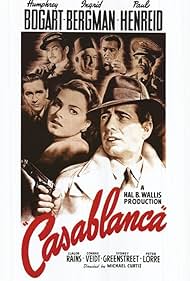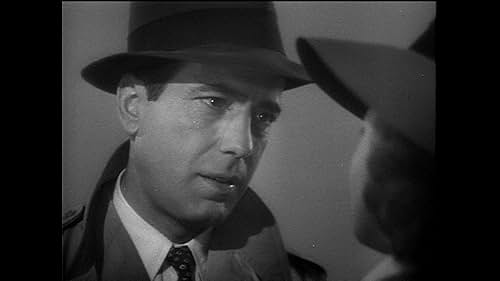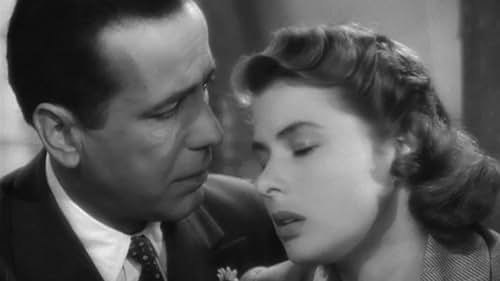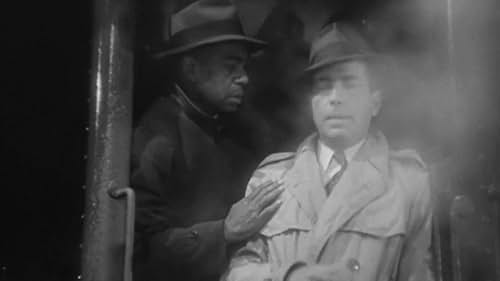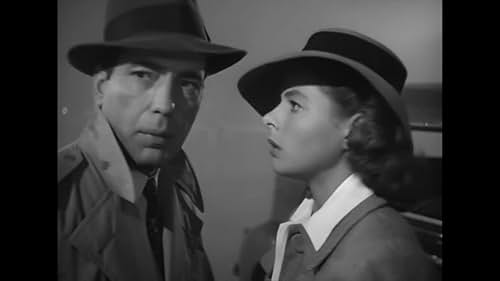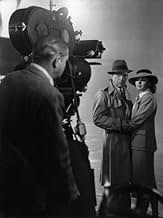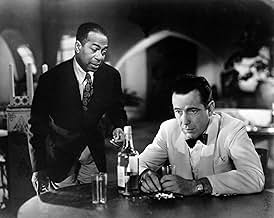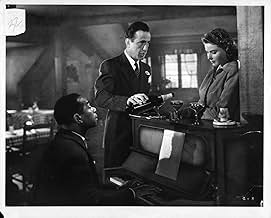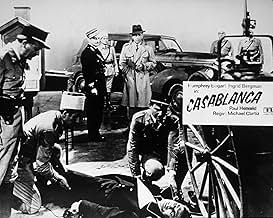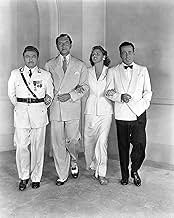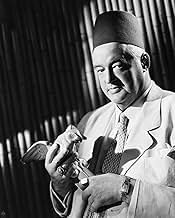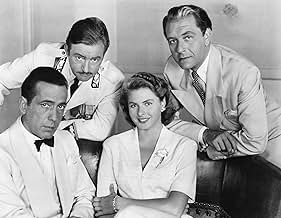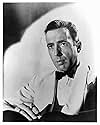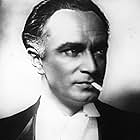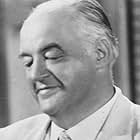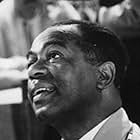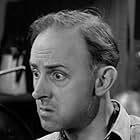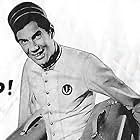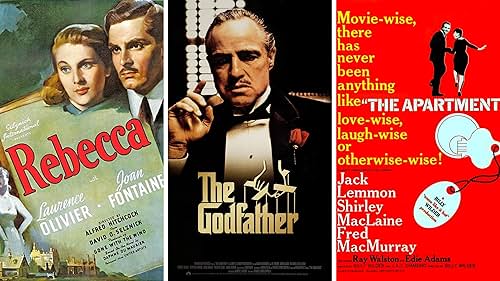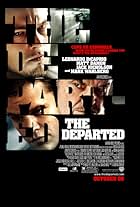A cynical expatriate American cafe owner struggles to decide whether or not to help his former lover and her fugitive husband escape the Nazis in French Morocco.A cynical expatriate American cafe owner struggles to decide whether or not to help his former lover and her fugitive husband escape the Nazis in French Morocco.A cynical expatriate American cafe owner struggles to decide whether or not to help his former lover and her fugitive husband escape the Nazis in French Morocco.
- Won 3 Oscars
- 14 wins & 11 nominations total
S.Z. Sakall
- Carl
- (as S.K. Sakall)
Madeleine Lebeau
- Yvonne
- (as Madeleine LeBeau)
Abdullah Abbas
- Arab
- (uncredited)
Enrique Acosta
- Guest at Rick's
- (uncredited)
Ed Agresti
- Bar Patron
- (uncredited)
Arnet Amos
- French Soldier
- (uncredited)
- …
Best Picture Winners by Year
Best Picture Winners by Year
See the complete list of Best Picture winners. For fun, use the "sort order" function to rank by IMDb rating and other criteria.
Storyline
Did you know
- TriviaMany of the actors who played the Nazis were in fact European Jews who had fled Nazi occupation.
- Goofs(at around 37 mins) When Rick is getting drunk he ask Sam, "It's December 1941 in Casablanca, what time is it in New York?" After Sam replies, "My watch stopped," he goes on to say, "I'll bet they're asleep in New York. I'll bet they're asleep all over America." However, Rick is not referring to the actual time (noted by giving a month and year rather than a time) and is actually making reference to, in pre-Pearl Harbor America, most Americans are "asleep" when it comes to the war and fighting the Axis powers. This is an intentional attempt at a poetic reference, not a statement of fact.
- Quotes
Captain Renault: What in heaven's name brought you to Casablanca?
Rick: My health. I came to Casablanca for the waters.
Captain Renault: The waters? What waters? We're in the desert.
Rick: I was misinformed.
- Alternate versionsAs late as 1974, the references to an extra-marital affair were banned in Ireland. The Irish cut got rid of two important sequences. First, after Ilsa tells Rick that she had left him after finding out that Viktor was still alive, the embraces and dialogue that followed were cut. Second, the emotional dialogue at the end of the film from Ilsa's line "You're saying that only to make me go" to Rick's line "What I've got to do, you haven't any part of". This led to Irish audiences' being bemused by the relationship between Rick and Ilsa, and often interpreting Rick's final speech beginning "I'm no good at being noble" as a reflection on the debilitating effects of war.
- ConnectionsEdited into 77 Sunset Strip: The Secret of Adam Cain (1959)
- SoundtracksLa Marseillaise
(1792) (uncredited)
Written by Claude Joseph Rouget de Lisle
Arranged by Max Steiner
Played during the opening credits
Sung by Madeleine Lebeau and others at Rick's
Variations played often in the score
Featured review
This is a film that MUST belong in every video collection in the U.S. is not in the world. The stories about it's making are legendary from the constant rewrites to the apocrypha of casting stories.
What is amazing to me, and the reason I believe it holds audiences almost spellbound in successive viewings, is the connection with the horrors of World War II was almost every single cast member. Sidney Greenstreet had lost a son in combat, and a number of the cast members fled Europe to escape the ravages of a Hitler regime. Even the evil Nazi character Major Strasser (played with relish by Conrad Veidt) had left Nazi Germany to escape almost sure internment and possible death in a concentration camp. Here was a man who was a legend in German film history as the murdering somnambulist (a possible warning about the Nazi soldiers to come?) and because of the vicious anti-Semitism and racism of the Germany of the '30s and '40s, we in America and in Hollywood were given a great gift.
Everyone in this film is fabulous, but it is the chemistry of Rick (Bogart) and Ilsa (Bergman) been truly holds the film together. When I saw this film almost frame by frame in the limited book series of classic films that were produced in the late 1960s, I was stunned by the subtlety of facial expressions that conveyed so much of Rick Blaine's character by a marvelous actor Humphrey Bogart. There is a reason why he was named the actor of the century.
While every person in the film becomes a real flesh and blood presence, the story of Rick and Ilsa is the center of this cinema feast.
I must confess that I have seen this picture so many times that I can recite every single line in the movie to the consternation of my wife who can't watch it with me anymore.
The line that sticks out the most for me, and which against cheers from New Yorkers whenever it plays in the theater. It is when Bogart says to the Nazis seated at his table, "There are parts of New York I wouldn't advise you to invade." And what makes this line so memorable is that Humphrey Bogart did indeed star in another motion picture for Warner Brothers where that very thing formed the basis for the script. That movie was "All Through The Night." I love this movie too, and I'm not even a New Yorker.
There have been many attempts to revisit "Casablanca," but only the original makes you really feel what it was like to live through "The Good War" in a faraway place like Casablanca in French Morocco.
Even though such trickery as midget airport workers, fog machines and cardboard cutout airplanes were utilized, this film convinces through its beautiful story with many layers, and characters that are so well realized.
If you've never seen this movie before, shame on you and see it immediately. If you only seen it once, I believe you will come back to it more than once. This is just about the most perfect film ever made and it is a miracle that that is so considering that there were so many hands in the pie. (Excuse me for my mixing my metaphors. It's late, and I get emotional just thinking about this classic film masterpiece.)
Play it again and again and again and again, Sam.
What is amazing to me, and the reason I believe it holds audiences almost spellbound in successive viewings, is the connection with the horrors of World War II was almost every single cast member. Sidney Greenstreet had lost a son in combat, and a number of the cast members fled Europe to escape the ravages of a Hitler regime. Even the evil Nazi character Major Strasser (played with relish by Conrad Veidt) had left Nazi Germany to escape almost sure internment and possible death in a concentration camp. Here was a man who was a legend in German film history as the murdering somnambulist (a possible warning about the Nazi soldiers to come?) and because of the vicious anti-Semitism and racism of the Germany of the '30s and '40s, we in America and in Hollywood were given a great gift.
Everyone in this film is fabulous, but it is the chemistry of Rick (Bogart) and Ilsa (Bergman) been truly holds the film together. When I saw this film almost frame by frame in the limited book series of classic films that were produced in the late 1960s, I was stunned by the subtlety of facial expressions that conveyed so much of Rick Blaine's character by a marvelous actor Humphrey Bogart. There is a reason why he was named the actor of the century.
While every person in the film becomes a real flesh and blood presence, the story of Rick and Ilsa is the center of this cinema feast.
I must confess that I have seen this picture so many times that I can recite every single line in the movie to the consternation of my wife who can't watch it with me anymore.
The line that sticks out the most for me, and which against cheers from New Yorkers whenever it plays in the theater. It is when Bogart says to the Nazis seated at his table, "There are parts of New York I wouldn't advise you to invade." And what makes this line so memorable is that Humphrey Bogart did indeed star in another motion picture for Warner Brothers where that very thing formed the basis for the script. That movie was "All Through The Night." I love this movie too, and I'm not even a New Yorker.
There have been many attempts to revisit "Casablanca," but only the original makes you really feel what it was like to live through "The Good War" in a faraway place like Casablanca in French Morocco.
Even though such trickery as midget airport workers, fog machines and cardboard cutout airplanes were utilized, this film convinces through its beautiful story with many layers, and characters that are so well realized.
If you've never seen this movie before, shame on you and see it immediately. If you only seen it once, I believe you will come back to it more than once. This is just about the most perfect film ever made and it is a miracle that that is so considering that there were so many hands in the pie. (Excuse me for my mixing my metaphors. It's late, and I get emotional just thinking about this classic film masterpiece.)
Play it again and again and again and again, Sam.
Details
- Release date
- Country of origin
- Official site
- Languages
- Also known as
- Everybody Comes to Rick's
- Filming locations
- Waterman Drive, Van Nuys, Los Angeles, California, USA(airport runway)
- Production company
- See more company credits at IMDbPro
Box office
- Budget
- $950,000 (estimated)
- Gross US & Canada
- $4,219,709
- Opening weekend US & Canada
- $181,494
- Apr 12, 1992
- Gross worldwide
- $4,720,495
- Runtime1 hour 42 minutes
- Color
- Aspect ratio
- 1.37 : 1
Contribute to this page
Suggest an edit or add missing content

